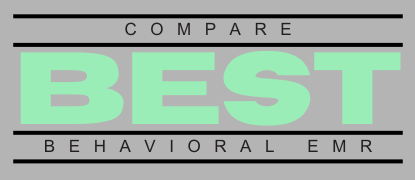In the ever-evolving landscape of behavioral health, technology continues to play a pivotal role. In particular, the integration of Electronic Medical Records (EMR) into behavioral health practices has revolutionized care delivery. This transformation is not only streamlining administrative processes but also significantly improving patient outcomes.
Understanding the Power of EMR Integration in Behavioral Health
EMR systems offer a unique solution for behavioral health practices, providing a centralized, accessible, and secure platform for patient data. This integration allows practitioners to track, manage, and analyze patient information in real-time, improving both clinical decision-making and patient outcomes.
A study published in the Journal of Medical Internet Research outlines how EMR integration enhances patient care. The findings indicate that EMR systems lead to increased efficiency and reduced errors, ultimately improving patient safety.
The Benefits of EMR Integration
Adopting behavioral health EMR systems offers a myriad of advantages, including:
– Streamlined Workflow: EMR integration automates administrative tasks, reducing paperwork and freeing up more time for patient care.
– Enhanced Communication: Sharing information between providers can lead to more coordinated and effective care.
– Improved Patient Outcomes: Access to complete and organized patient data enables practitioners to make informed decisions, resulting in better treatment plans and outcomes.
– Increased Compliance: EMR systems can assist practices in meeting regulatory requirements, such as HIPAA and Meaningful Use.
Implementing EMR Integration in Your Practice
Implementing EMR integration into your behavioral health practice may initially seem daunting. However, a systematic approach can significantly simplify the process.
First, evaluate your current systems and identify areas that need improvement. Our free practice analysis tool can assist you in this process, providing insights into potential areas for EMR integration.
Next, research different EMR systems that cater to behavioral health practices. Look for features that match your practice’s needs, like appointment scheduling, billing, and clinical documentation tools.
Finally, ensure that staff members receive adequate training on the new system. This step is crucial to ensure a smooth transition and to maximize the benefits of your new EMR.
Conclusion: Embrace the Future of Behavioral Health
Behavioral health practices need to adapt to the digital age to deliver efficient and effective care. EMR integration in behavioral health not only streamlines administrative tasks but also significantly improves patient outcomes. By leveraging our free practice analysis tool, you can identify areas in your practice ripe for EMR integration. Embrace this technological revolution and enhance your practice’s efficiency and patient outcomes today.
**Meta Description:** Explore how EMR integration in behavioral health practices streamlines administrative tasks and improves patient outcomes. Leverage our free practice analysis tool to identify areas for EMR integration in your practice.
